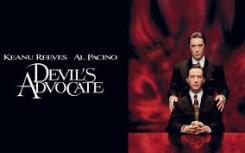
How do I decide?
03 Jan 2021
How do I decide?
Published by Rajiv Krishnan Pisharoti
Some times we get caught up in situations where we are just not able to decide for self. The below insight provides us a valuable tool to help us make up our mind.
In a study, students were asked to consider a choice between two jobs. It read as below.
Job A represents a career that you are well prepared for. You took a lot of courses on the subject in your college, though your interest in same was due to pressure from parents and friends. Your early days in college would be gruelling but in long run this job would guarantee a high pay and prestige.
Job B represents a non-traditional career that you have always been interested in. Your expected earnings will be little more than modest, but you think the work will be very fulfilling. It will give you opportunity to gain, profound freedom and discover yourself and benefit humanity.
Which job would you choose?
When students were asked to choose for themselves 66% chose B.
Later when the same set of students were asked to advice their best friend who is in a similar situation – What advice they would give?
83% recommended job B.
Somehow the choice was clearer when students thought about their best friends than they thought about themselves. Distance yielded clarity.
Psychologists have come to understand why this happens? In essence when we are giving advice, we find it easier to focus on the most important aspect. So when we advice Job B to our friend, we could think job B is going to make her satisfied and happy over the long term. It seemed relatively simple.
But when we think about ourselves we let complexity intrude. Wait, wouldn’t it disappoint Dad/Mom if I gave up prestige of job A. Could I really digest the fact if that “Moron” ended up making more money than me?
In short researchers have concluded when we think of others or give advice to others, we are able to see the forest but when we think for ourselves we get stuck in a tree. We are not able to view long term.
There is another advantage of the advice we give to others. We tend to be wise about counselling others. This because we are easily able to overcome the short term emotions.
For example consider another study as below. A set of boys in college were asked below
You are thinking of calling a girl from adjoining psychology class whom you like but you have talked with her only once. You are afraid she won’t remember who you are when you call? You have two options:
a) Wait until you talk to her more before calling
b) Call her
When polled what will you do in this situation? Most polled option a) i.e I will wait until I talk to her more and then call.
However when they were asked what they would advice their best friend in a similar situation most polled option B)… i.e Call her.
In this situation if you have a 10 minute view you will dread every minute leading up to making that call. If she seemed perplexed by your call, you might well be embarrassed. But if you have a 10 month view, you could conclude by now, this whole incident would not be remembered much. In 10 years, this incident would long seem forgotten.
Hence researchers have concluded that when we are advising self, we tend to get caught on short term emotions and we find it difficult to visualize the long term . However when we advice others we are able to visualize long term easily and downplay short term emotions.
That’s why the next time when you are unable to decide, try asking this question to self –
“What would I tell my best friend to do in this situation?”
You will be surprised how effectively this question can clarify things.

Written By
Rajiv Krishnan
60% Trainers do not have enough job in hand.
77% Corporates find it difficult to reach to the right Trainers.
Not because of lack of Trainers. But, for the lack of connect in the market.






